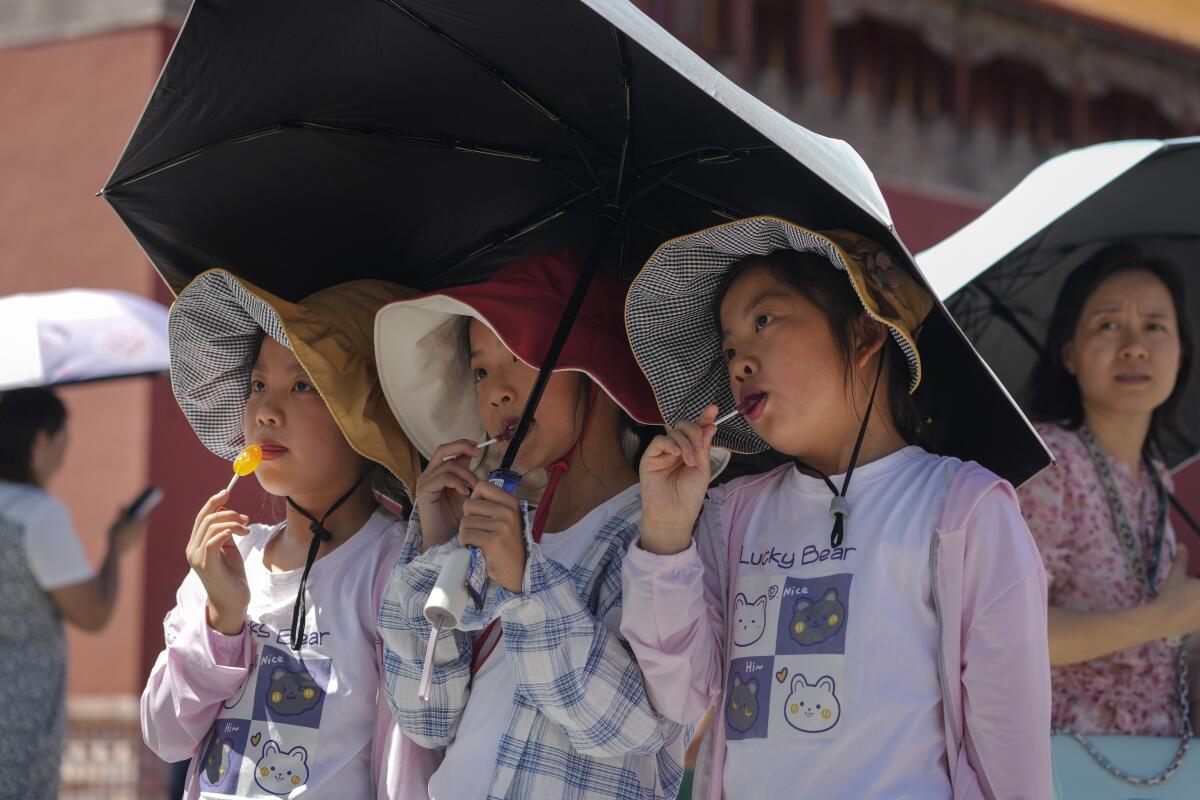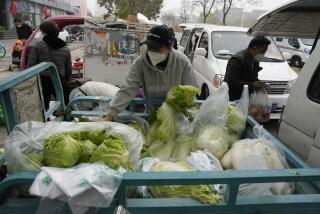Chinese cities open air-raid shelters for relief as heat wave claims lives

- Share via
TAIPEI, Taiwan — Cities across China opened their air-raid shelters to offer residents relief from the heat Friday as unusually high temperatures across parts of the country started claiming lives.
Northern China is experiencing strings of days with record-high temperatures, along with drought. Earlier this week, Beijing reported more than nine straight days with temperatures exceeding 95 degrees, according to the National Climate Center — a streak unseen since 1961.
Cities such as Hangzhou on China’s east coast, Wuhan in the country’s center and Shijiazhuang in a province neighboring Beijing have announced over the last week that they were opening their air-raid shelters to residents seeking to escape the heat.
Authorities have issued health alerts and, in the capital and elsewhere, suspended outdoor work.
So far, two deaths in Beijing have been attributed to the scorching heat. Health authorities said a tour guide collapsed and died of heat stroke Sunday while giving a tour of the Summer Palace, a vast, 18th century imperial garden on the city’s west side. Last month, a woman in Beijing also died from heat stroke.
Health authorities in Shaoxing, a city neighboring Hangzhou, said Thursday that they have recorded deaths caused by the heat, but did not give any details.
While subject to additional review, experts say the data reflect the continued effects of climate change, and may not be the last records set this year given the return of El Niño.
Chinese cities such as Chongqing, a southwestern metropolis known for its torrid summers, have for years used their air-raid tunnels as public cooling centers.
Numerous Chinese cities started building air-raid shelters during the Japanese invasion beginning in 1937. The building campaign resumed in the late 1950s, when China’s relationship with the Soviet Union soured and Beijing feared a nuclear attack.
The shelters are now often equipped with seating areas and offer access to water, refreshments, heat stroke medicine and, in some cases, amenities such as Wi-Fi, TV sets and table tennis equipment.
Weather authorities warned Thursday of severe drought in northern China threatening crops and stressing overworked electric grids. Meanwhile, in southern China, heavy flooding has displaced thousands of people over the last few weeks.
Earth’s average temperature set a new unofficial record high Thursday, the third such milestone in a week that already rated as the hottest on record.
More to Read
Sign up for Essential California
The most important California stories and recommendations in your inbox every morning.
You may occasionally receive promotional content from the Los Angeles Times.













